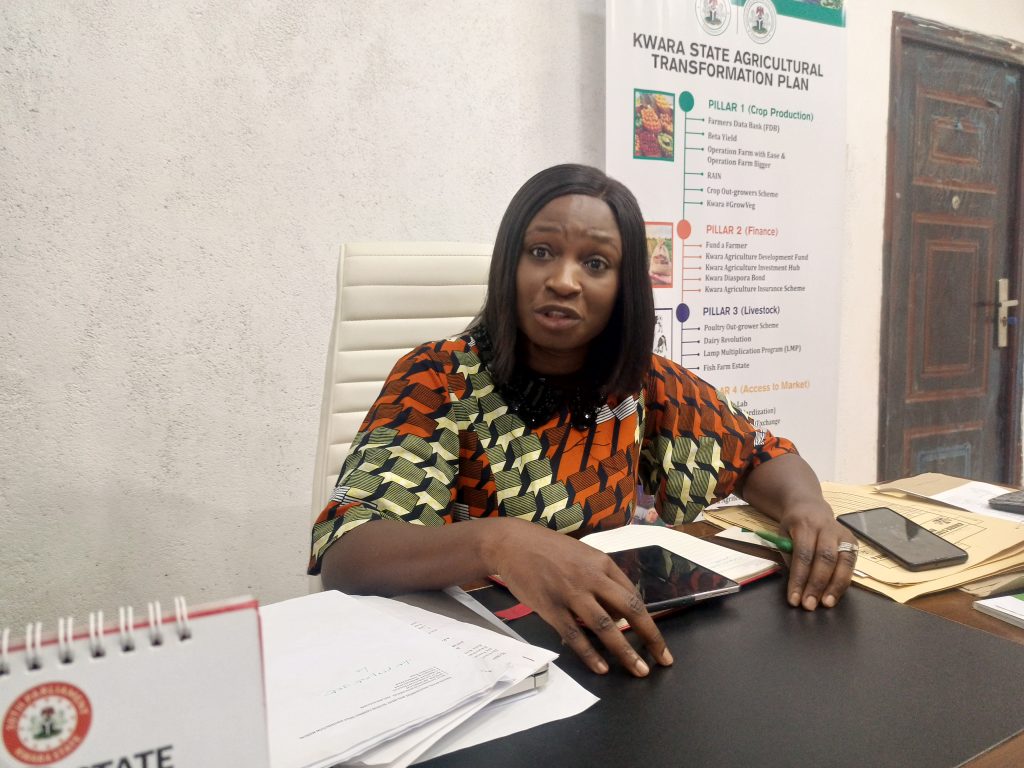By Dare Akogun
The Kwara State Commissioner for Agriculture and Rural Development, Mrs. Oloruntoyosi Thomas, has called on residents to utilize available spaces in their homes for farming as a practical solution to immediate hunger and the rising cost of food.
Speaking to newsmen in her office in Ilorin, the state capital, Mrs. Thomas emphasized the potential of backyard farming to significantly enhance food security that’s has been greatly affected by changes in climatic conditions.
Mrs. Thomas highlighted that backyard farming is a strategic intervention that addresses both immediate and future food needs, just as it is a realistic and sustainable approach to address food shortages and high food prices.
The Commissioner stressed the importance of utilizing small spaces in homes to plant vegetables and other crops, thereby supplementing household nutrition with a diverse range of plants.
Mrs. Thomas, said this farming practice not only ensures a healthier and richer food supply but also contributes to a safer environment.
“If many households engage in this type of farming, we will see an abundant supply of food, which in turn will reduce prices and tackle hunger,” she said.

The commissioner said the initiative aligns with the broader goals of the Kwara State Government to promote agricultural development and rural empowerment.
She said the government, recognizing the importance of this initiative, has introduced a backyard farming program aimed at encouraging residents to start their gardens.
The commissioner added that the state government has commenced the scheme by supporting 50 households with seedlings across the sixteen local governments until every household is captured.
“The Kwara State Government, recognizing the importance of this initiative, has introduced a backyard farming program aimed at encouraging residents to start their own gardens.
“We have strategic plans in place and have begun implementing them by training at least 50 households in each of the 16 local governments on how to effectively carry out backyard farming.
“Additionally, we are providing seeds to these households to kick-start their farming activities immediately after training,” Mrs. Thomas explained.
“We must collectively act now, not just with our brains but with our hands, to mitigate the impact of food shortages and hunger.
“During this period of high food costs, it is crucial for households to make judicious use of their small spaces for gardens.
“By encouraging backyard farming, we are not only solving the problem of food insecurity today but also laying a foundation for a more sustainable and self-sufficient future.
“This initiative is part of our comprehensive approach to agriculture and rural development, and we are confident that it will have a lasting positive impact on our communities,” she said.

